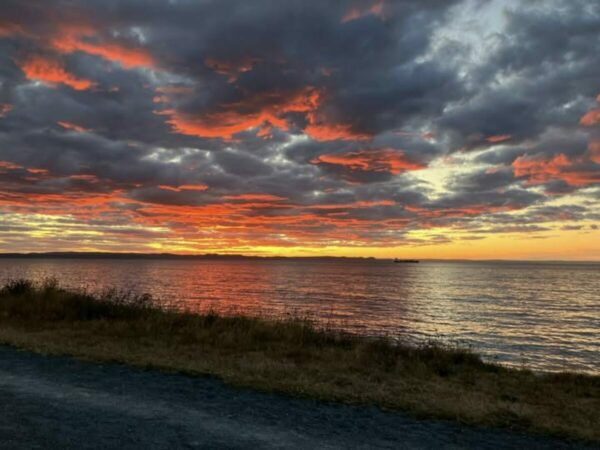Newfoundland music is rich, lively, and deeply tied to the island’s culture, history, and storytelling. It blends Irish, English, Scottish, and French influences with a uniquely Newfoundland flavor.
🎶 Traditional Newfoundland Music
- Irish & Celtic Roots: Many songs come directly from Irish jigs, reels, and ballads, brought over by settlers. Fiddles, accordions, tin whistles, and bodhráns are common instruments.
- Sea Shanties & Ballads: Music was often about the sea, fishing, sealing, shipwrecks, and everyday life. Songs like The Ryans and the Pittmans (“We’ll Rant and We’ll Roar”) became iconic.
- Kitchen Parties: Informal gatherings where families and friends played instruments, sang, and danced. The “kitchen party” is still a Newfoundland cultural hallmark.
🎵 Well-Known Newfoundland Songs
- I’se the B’y – A lively folk song known across Canada.
- The Ryans and the Pittmans – A rousing sea shanty.
- Sonny’s Dream – Written by Ron Hynes, one of Newfoundland’s greatest songwriters; covered worldwide.
- Let Me Fish Off Cape St. Mary’s – A heartfelt ballad about love of place.
- Lukey’s Boat – A humorous traditional tune, often performed by Great Big Sea.
🎤 Famous Newfoundland Musicians & Bands
- Great Big Sea – Brought traditional Newfoundland music to international audiences with energetic folk-rock.
- Ron Hynes – Known as “The Man of a Thousand Songs,” revered for his songwriting.
- Figgy Duff – Helped revive traditional folk music in the 1970s and 80s.
- The Ennis Sisters – Blending traditional and contemporary sounds with rich harmonies.
- Buddy Wasisname and the Other Fellers – Comedy, storytelling, and music, beloved across Newfoundland.
🪕 Instruments Commonly Used
- Fiddle 🎻
- Accordion 🎹
- Tin whistle & flute 🎶
- Bodhrán (Irish drum) 🥁
- Guitars & mandolins 🎸
- Voices – strong harmonies are a hallmark
💃 Dance & Social Life
- Set Dancing & Jigs: Music is tied to dance, often fast-paced and communal.
- Community Concerts & Festivals: Events like the Newfoundland Folk Festival in St. John’s celebrate traditional and modern performers.
🌊 Themes in the Music
- The sea (fishing, sailing, shipwrecks).
- Community life and humor.
- Longing for home and resilience.
- Faith and storytelling.
:

Here’s a short history timeline of Newfoundland music, highlighting key moments and traditions:
Early Roots (1600s–1800s)
- Indigenous Music (Beothuk, Mi’kmaq, Innu): Traditional songs, chants, and drumming reflected spiritual life, hunting, and storytelling.
- Irish & English Influence: With immigration in the 1700s–1800s, Irish reels, jigs, and English ballads shaped Newfoundland folk traditions. Fiddle, accordion, and bodhrán became central instruments.
- Sea Shanties & Ballads: Fishermen and sailors sang work songs and narrative ballads about the sea, sealing, shipwrecks, and outport life.
1900s–1940s
- Song Collecting: Folklorists like Maud Karpeles recorded traditional songs, preserving oral heritage.
- Radio & Local Bands: Early Newfoundland radio carried folk music, dance tunes, and accordion styles across the island.
1950s–1960s
- Folk Revivals: Local groups began performing traditional material on stage, blending Irish, Scottish, and Newfoundland styles.
- Cultural Identity Strengthened: Music became a key expression of Newfoundland nationalism during Confederation debates.
1970s–1980s
- The Rise of Bands:
- Ryan’s Fancy (formed in 1971) brought traditional Newfoundland songs to a wider Canadian audience.
- Figgy Duff (founded in 1976 by Noel Dinn) fused rock with traditional Newfoundland ballads and became a cultural landmark.
- Wonderful Grand Band mixed comedy, rock, and folk on television, boosting Newfoundland identity.
- Revival of Traditional Songs: “I’se the B’y,” “Lukey’s Boat,” and “The Kelligrews Soiree” became widely recognized.
1990s–2000s
- International Recognition:
- Great Big Sea (formed 1993) modernized Newfoundland folk, blending it with pop-rock and reaching global audiences.
- Artists like Ron Hynes (“Man of a Thousand Songs”) gained fame for songwriting rooted in Newfoundland stories.
- Celtic & Folk Festivals: Newfoundland folk festivals expanded, celebrating heritage.
2010s–Present
- Diverse Styles: Traditional music remains strong, but genres like indie rock, hip hop, and classical have grown in the province.
- New Voices: Artists like The Once, Amelia Curran, Fortunate Ones, and Rum Ragged carry the folk tradition forward.
- Cultural Exports: Newfoundland music continues to showcase a strong sense of place, storytelling, and seafaring heritage to the world.
?
